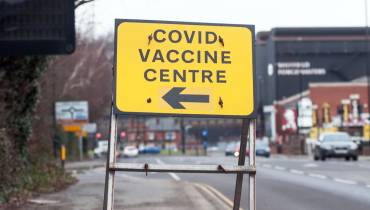Essential Questions to Ask Recruiters Before a Job Interview

Imagine you’ve already started your new job probation and found out that the hiring company did not have a remote work policy, which is vitally important to you that it has.
In that case, you may have wasted your valuable time and resources applying for a job that is not right for you, or even missed out on other job opportunities that were more suited to you.
To avoid such unfortunate scenarios, it’s important to ask recruiters some critical questions that an applicant might have beforehand to determine whether the job is a right fit for you.
Preparing Questions for Recruiters Before an Interview
A job interview is an introductory stage of the hiring process. During an interview, the recruiter or hiring manager gathers more information about the applicant’s skills and experience.
Reaching out to a resume service before the interview date might help you create a winning resume that provides recruiters with all the data they seek and lands you the job.
However, the resume service agency won’t save you from applying for the wrong job that doesn’t suit you. So, it is advisable that you learn as much as you can and ask the right questions about the open position before you agree to go through the job interview process.
- Take a paper and write down the no-brainers. For instance remote working might be a non-negotiable for you.
- List your fears too. Are you afraid of workplace bullying the most, or something else entirely? Ask the recruiter about the company’s ethics and employee protections.
- Form questions according to your list of priorities and fears. Then, when applying for the job, send the questions to the recruiter. Or, if the latter decides to call you before a face-to-face interview, ask them the questions then.
Key Questions to Ask Recruiters Before an Interview

Here are seven key questions to add to your list and ask recruiters before a job interview:
#1: How can you describe the culture in your organization?
Most companies are left-leaning nowadays, with gender policies and great social packages. However, some companies might resist being involved in fighting social injustice.
Ask the recruiter how they address conflicts based on race, gender, or religion. If you come from a minority background, justice and safety should be among your top priorities.
At the same time, research the company’s culture yourself. Visit sites like Glassdoor, where former employees gather to leave reviews on companies. Or check what others say about the company on LinkedIn and other social media and online platforms.
#2: What stages does the interview process consist of?
Jobs differ, and job interviews for various positions will vary as well. For instance, a job interview for a teaching position might include a short performance in a class.
Meanwhile, a job interview for a slogan writer might consist of the candidate being tasked with writing a slogan for an advertisement campaign.
Sometimes, there might even be tests and interviews with your future team’s supervisor.
Include the following questions when asking about the interview stages:
- Will there be multiple interviews?
- Will the interview include assessment tests?
- Will I discuss with my potential supervisor?
- How much time will each interview stage take?
#3: Which skills or knowledge is the company looking for the most?
Some skills like communication and teamwork are universal since most jobs require them. But what if you lack a skill that the company treasures? Can you attain the skill in a short period?
Let’s say you’re applying for a managerial job position in the building sector. If you’ve worked as a manager in a different industry, you might lack knowledge in building and architecture.
Even if your managerial skills are top-notch, lack of expertise in a specific sector can hurt your chances. So, it’s important to be aware and ask about the skills that are most required by the recruiting company. Then you can plan how to acquire them or maneuver around them.
#4: What is the salary?

Some companies will propose you a raise in a few months or right after the probation period. In other organizations, getting a pay raise might take years. If you expect your paycheck to get bigger each month, ask about it before the interview.
Sure, the salary question is a sensitive one. But, no one will blame you for wanting at least fair wages or salary, particularly in current tough economic times and if you’re the breadwinner in your family.
- Ask the recruiter how often the company initiates performance and salary evaluations.
- Ask about taxes. The tax collection might take a big chunk of your budget away.
- Ask about the career ladder. Moving up the career ladder usually means getting a higher salary.
#5: What is the social package?
One day you may retire and have to live on the savings you’ve made throughout your career. So, don’t be ashamed to ask about the company’s 401(k) plans or insurance.
Also, check whether the company pays for its employees’ vacations and sick days. If it does, find out the number of days the company pays for. Some companies will allow you to have a longer vacation but on the condition that you pay for a week or two.
If you’re not yet married but you are planning to start a family in the future, ask the recruiter about the company’s paternal/maternal leave policies and conditions.
Other things in the social package might include:
- Paying for a sports club subscription.
- Free meals.
- Paying for foreign language courses or other courses that employees consider essential or interesting.
#6: Who will be in my team at the company?
By asking the recruiter to describe your likely team if you are hired, you’ll get an idea of who the people you’ll have to work with are. You’ll also get an idea of the number of working hours, the nature of teamwork, and the team's direction when it comes to projects and objectives.
If you’re not a big fan of fieldwork or such, and you find out that is what takes the most prominence at the company or, you may want to consider moving on to the next company.
#7: How long has the position been open?
Most job-hunting platforms show the publication date of the open job position, but ask the recruiter how long the position has been open. If the job was posted long ago, you may deduce that the company is particularly picky or thorough in its talent search. Proceed with caution.
On the other hand, if a job was posted recently, it could mean that your chances of winning it are better since you’ll be among the first candidates to apply for it.
In Conclusion
The answers you get to those key questions will shed more light on the open role, company’s culture, career development opportunities, salary, and more. This will help you determine if the job is a good fit for you, or it might just scare you away.
It is important, nevertheless, to ask the questions well ahead of time. If you don’t ask the right questions before an interview, you might waste your time and the company’s time applying for the wrong job. It’s always best to find out if the job and company is a good fit early. Good luck!




















